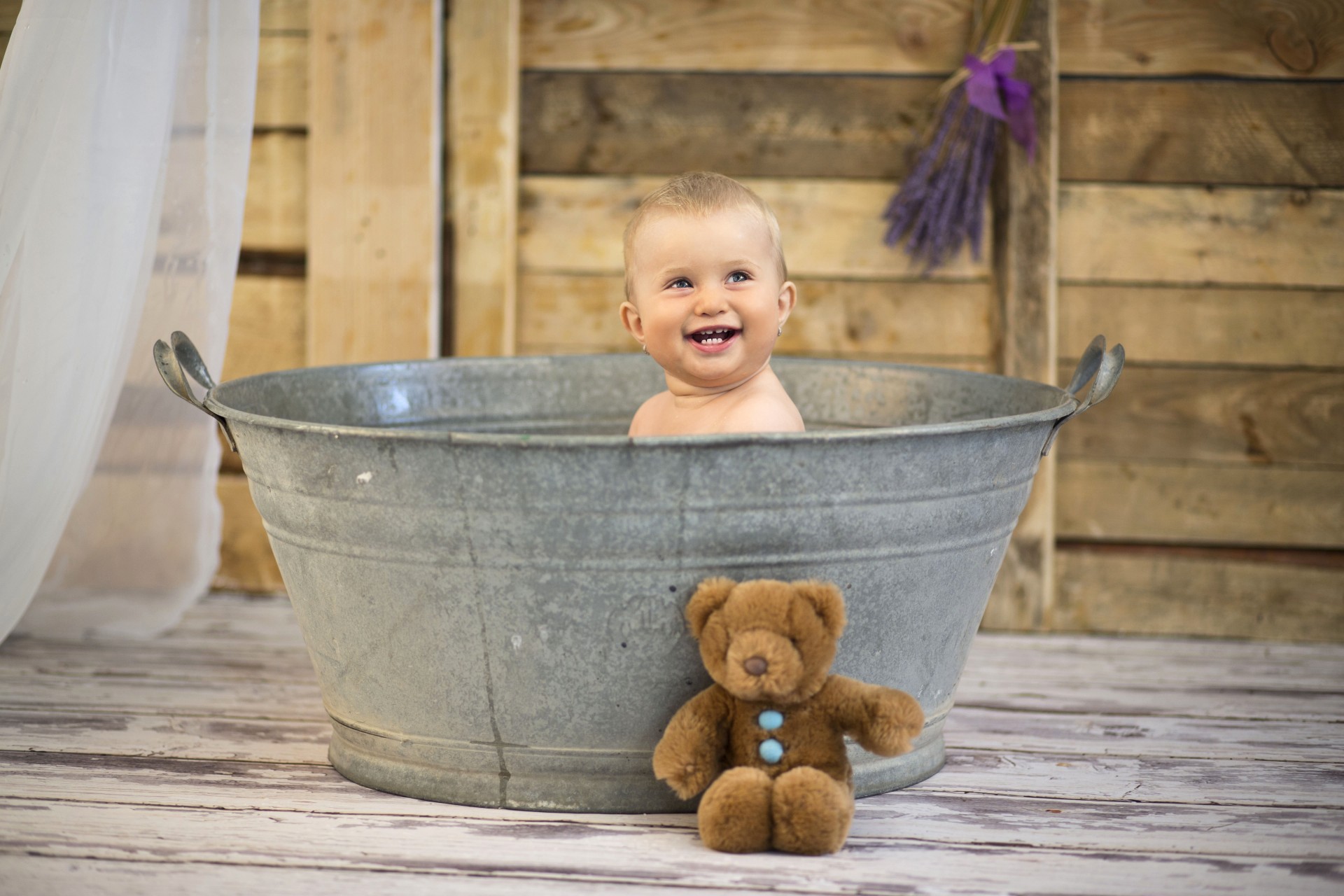
Photo by CC user Anna Langova on publicdomainpictures.net
Taking your first child home is a scary and beautiful learning process that will take you on a lifelong journey of self-exploration. There will be many firsts – baby’s first feeding, first diaper change, first bath and many more. Luckily, until baby starts moving around, they don’t get all that dirty and don’t require much bathing. In fact, you will probably only need to bathe your baby two or three times a week, in a sponge bath until the umbilical stump falls off and a baby bath tub afterwards.
Not all babies are going to take to the bath like a fish takes to water, however. If this is the case for your child – here are a couple tips to baby’s first cleaning goes off with a few kinks as possible…
Make Sure Baby is Fed and Rested
Babies are notoriously fickle. They can be happy, smiling and laughing one second and then suddenly be upset, sad and screaming the next – and all without warning. You will learn the unique language of your child over time, however, it’s going to be a learning process. One of the things you are going to learn, and quickly, is that baby is going to be more irritable if they are hungry or sleepy. Before giving them a dunk in the tub, make sure they’ve been fed and slept, to give yourself the best chance that they are going to be amiable to the coming bath.
Transition Gradually to the Tub
You are not going to want to just dunk your baby in the tub right off the bat. Until their umbilical cord falls off, you are going to want to sponge bathe them. At about four to six weeks old, you can put them in a baby bath tub, which is a hybrid of the full tub and sponge bath experiences. This way, once your baby can sit up by themselves, they are ready for the big bath!
When you’re preparing baby for the big tub, try filling it to the desired level before bringing baby in as the loud faucet might scare them.
Sing to Them
Babies begin to learn from music at a very early age. A recent study by the University of Washington found that a series of play sessions with music improved the surveyed babies’ brain processing both of music and new speech sounds. Like music, language has strong rhythmic patterns that help define one speech sound from another. While singing is great for getting your child to pay attention, it also provides a useful distraction. If they are scared of the tub or the water that’s washing the shampoo from their hair, try singing to them to get them distracted from the stimulus that is bothering them.
Bath time is an important part of the bond building between parent and child. It’s not just a necessity for their budding hygiene, but should also be fun for both of you!
